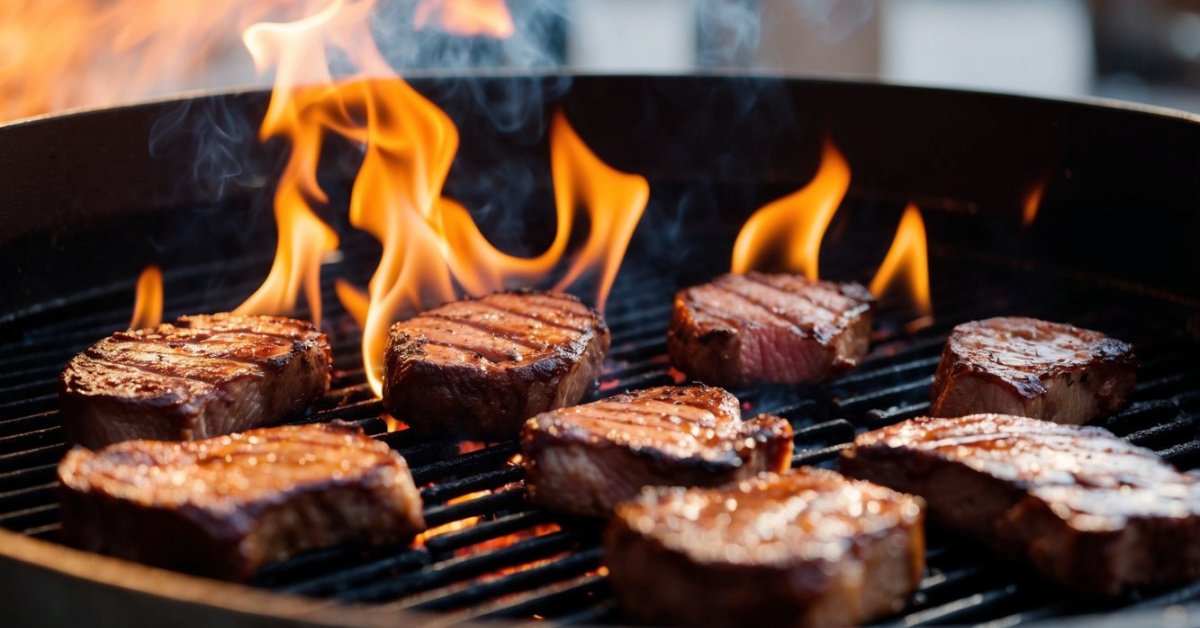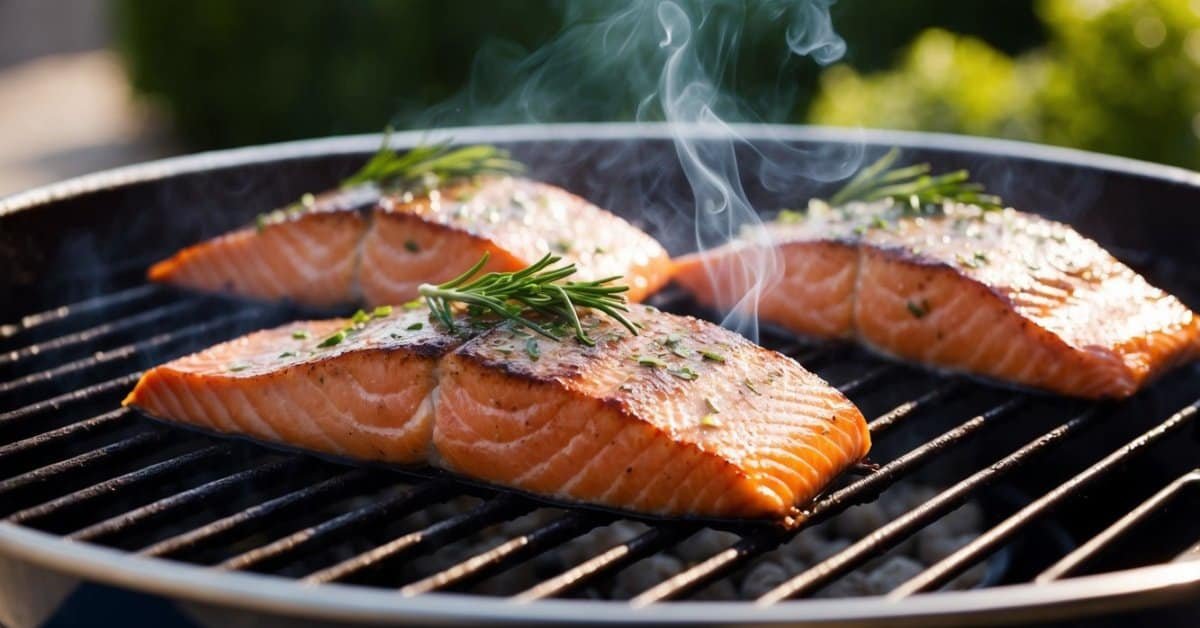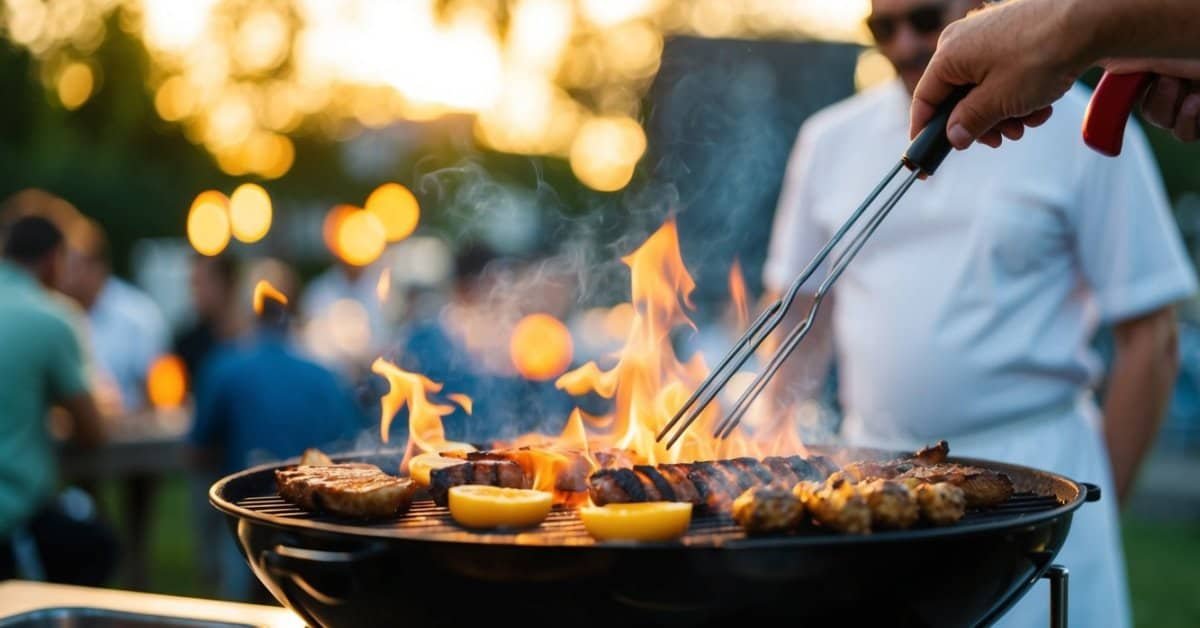Grilling 101: How to Tell if Your Thanksgiving Turkey Is Bad
So you’re new to grilling and barbecuing, and you’ve got your eyes set on cooking a delicious Thanksgiving turkey for your family and friends. But how do you know if the turkey you bought is still good to eat?

There are a few signs to look out for, including appearance, smell, and texture. And don’t forget to check the expiration date and storage conditions. In this article, we’ll go over these warning signs and share some common mistakes to avoid when selecting and storing a turkey. We’ll also discuss the risks of consuming a bad turkey and provide tips on proper handling and storage to avoid spoilage.
So fire up the grill and get ready to impress your guests with a perfectly cooked turkey – but first, read on to learn how to tell if a turkey is bad.
Signs of a bad turkey are appearance, smell, and texture.
When it comes to grilling the perfect turkey, proper preparation is key. However, even with the best of intentions and attention to detail, sometimes things can go awry. One of the biggest concerns for grillers is how to tell if a turkey has gone bad before grilling it. Here are some signs that your bird may not be fit for consumption:
Appearance: When inspecting your turkey before cooking, look out for any discoloration or unusual spots on its skin or flesh. Discoloration could indicate that bacteria has started to grow on the meat.
Smell: A fresh turkey should have little odor other than a mild gamey scent from being an animal product. If you detect any sour or unpleasant smells coming from your bird, this could be a sign that it’s spoiled.
Texture: The texture of raw poultry should be firm and springy when touched. If you notice excessive slime or stickiness on your bird’s surface when handling it, this indicates bacterial growth and spoilage.
It’s important to remember that spoiled meat can cause serious illness if consumed – especially in high temperatures like those used in grilling – so erring on the side of caution is always best when dealing with questionable foodstuffs.
By keeping these warning signs in mind while preparing your next outdoor feast, you’ll ensure that all guests stay safe and satisfied throughout their meal!
Check the expiration date and storage conditions.
When it comes to grilling, one of the most crucial steps in ensuring a delicious and safe meal is checking the expiration date and storage conditions of your meat. While it may seem like a no-brainer, many new grillers overlook this important step.
Firstly, always check the expiration date before purchasing any meat. This can usually be found on the packaging or label of the product. If you are unsure if your turkey is still good to use, there are a few things you can look out for.
A bad turkey will often have an off smell that is easily noticeable upon opening its packaging. The color and texture may also appear different from when it was first purchased – spoiled meat usually has a slimy or sticky texture with discoloration on certain areas.
Proper storage conditions are equally important in maintaining freshness and preventing spoilage. Raw poultry should always be stored at temperatures below 40°F (4°C) in order to prevent bacterial growth that could lead to foodborne illnesses such as Salmonella or E.coli.
In addition to temperature control, proper packaging can also help preserve freshness by preventing exposure to air which oxidizes fats within meats causing them go rancid more quickly than their air-tight counterparts would have otherwise done so under similar circumstances..
By taking these simple precautions into consideration before firing up your grill this summer season,, even novice grillers will achieve amazing success with their barbecue dishes every time!
Common Mistakes in Turkey Selection and Storage.
Selecting and storing a turkey for the perfect Thanksgiving feast can be a daunting task, especially for those new to grilling and barbecues. However, there are some common mistakes that even seasoned grill masters make when it comes to choosing and storing their turkeys.
The first mistake is not considering the size of your bird. Many people tend to overestimate how much they need, resulting in leftovers that go uneaten or an overcrowded grill that doesn’t cook evenly. It’s always better to err on the side of caution and choose a smaller turkey than you think you’ll need.
Another common mistake is not properly thawing your turkey before cooking it. This can result in uneven cooking or even food poisoning from bacteria growth on the unthawed portions of meat. Make sure you give yourself enough time (upwards of 24 hours) to defrost your bird in the refrigerator before grilling.
When selecting your turkey, don’t just grab any old one off the shelf without inspecting it first! Look for signs of damage or tears in its packaging as these could indicate bacterial contamination or freezer burn which will affect taste quality.

Lastly but not least important – ensure proper storage conditions after purchase by keeping refrigerated below 40 degrees Fahrenheit until ready for use so that both freshness & safety are ensured throughout preparation stages leading up-to dinner time!
By avoiding these common mistakes when selecting and storing your Thanksgiving Turkey, you’ll be well on your way towards achieving perfectly cooked results every time!
The risks of consuming a bad turkey are.
As a grilling enthusiast, you know that the perfect turkey can make or break your barbecue. But did you know that consuming a bad turkey can not only ruin your meal, but also pose serious health risks?
First and foremost, it’s important to recognize the signs of a bad turkey. If the bird has an off odor or slimy texture, it’s likely spoiled and should be discarded immediately. Additionally, if there are any discolorations on the skin or visible mold growths on the meat itself – steer clear.
But why is consuming a spoiled turkey so dangerous? Well for starters, bacteria such as Salmonella and Campylobacter are common culprits in foodborne illnesses associated with poultry consumption. These bacteria thrive in warm environments (like inside your grill!) and can cause anything from mild stomach discomfort to hospitalization.
Furthermore, certain strains of E.coli have been known to contaminate turkeys during processing or storage – leading to severe illness such as kidney failure.
So what precautions should you take when grilling up this Thanksgiving staple? Always ensure that your turkey is cooked thoroughly – reaching an internal temperature of at least 165 degrees Fahrenheit throughout all parts of the bird. And remember: when in doubt throw it out!
By following these simple guidelines you’ll be able to enjoy delicious grilled turkeys without putting yourself at risk for potential illness!
How should turkey be properly stored and handled to avoid spoilage?
When it comes to grilling turkey, proper storage and handling are crucial in order to avoid spoilage. As a seasoned grilling enthusiast, I can tell you that there’s nothing worse than biting into a piece of spoiled meat.
First and foremost, make sure your turkey is properly thawed before cooking. This can take several days in the refrigerator or be done more quickly using cold water methods. Never leave your frozen turkey out at room temperature for an extended period of time.

Once thawed, keep your turkey refrigerated until just before cooking. If you need to marinate the bird beforehand, do so in the refrigerator rather than on the counter where bacteria can thrive.
When handling raw poultry, always wash your hands thoroughly with soap and warm water both before and after touching it. Use separate cutting boards and utensils for raw meats to prevent cross-contamination with other foods.
After cooking your turkey on the grill or smoker (which I highly recommend), use a meat thermometer to ensure it has reached an internal temperature of 165°F throughout all parts of the bird. Once cooked throughly store leftovers within two hours by putting them inside sealed containers in either fridge or freezer depending upon when they will be consumed later on .
By following these simple steps for storing and handling raw poultry during grilling season , you’ll be able enjoy perfectly cooked turkeys without worrying about any health issues caused by foodborne illnesses . So fire up that grill this Thanksgiving season knowing full well you have got everything under control!
Conclusion
At the end of the day, when it comes to telling if a turkey is bad and safe for consumption, you always have safety first in your mind. Make sure to check its appearance, smell and texture before buying or eating it. Also remember to pay attention to storage conditions as well as expiration dates! With these simple tips you’ll be able keep yourself from making any common mistakes with purchasing and handling Turkey so that all your grilling adventures are flavorful ones!














